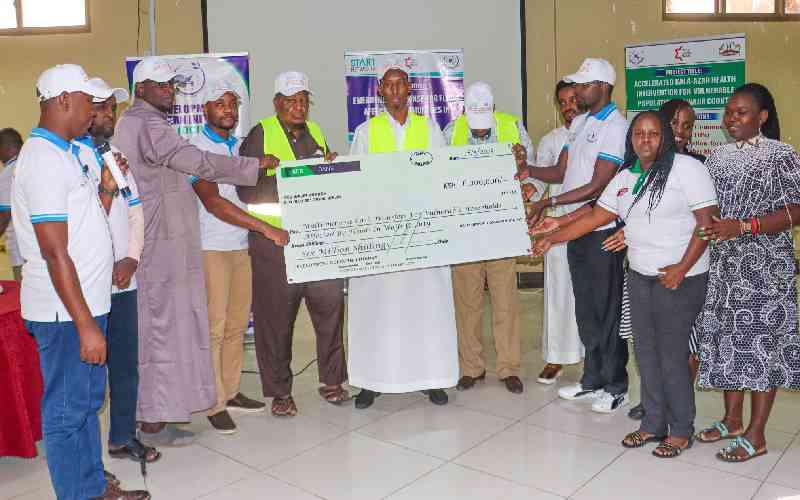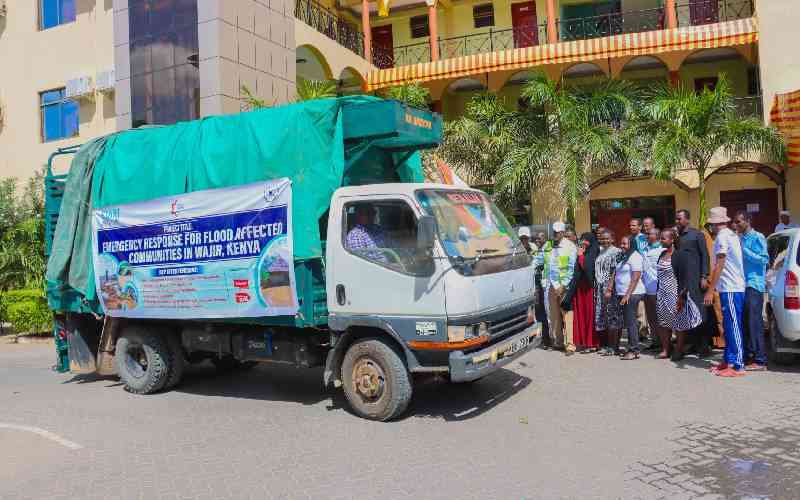Wajir County launches emergency response project to mitigate climate-related disasters

Wajir County has launched an emergency response project aimed at combating disease outbreaks and climate-related disasters.
The project, a partnership between the county, Development Concern Initiative, and Christian Aid, aims to reach over 1,000 households in Wajir West Sub-County.
Deputy Governor Ahmed Muhumed said the project aims to support families affected by flash floods, a deadly kala-azar outbreak, and severe sandstorms, particularly in the Gurar location, which has been one of the hardest-hit areas.
Speaking during the official launch, Muhumed lauded the initiative as a timely and people-centred response.
“This project speaks to the heart of what humanitarian service should be local, responsive, and collaborative. The County Government is proud to work hand-in-hand with local and international partners to restore dignity and hope to families in crisis,” he said.
The Deputy Governor reaffirmed the county’s commitment to strengthening disaster preparedness and delivering inclusive support to all residents, especially in hard-to-reach areas
The project is funded by the Start Network and implemented through a consortium that includes HelpAge International and World Jewish Relief.

Its main objective is to deliver multipurpose cash transfers, essential non-food items, WASH kits, and shelter materials tailored to meet the urgent needs of the affected population.
The intervention is designed not only to offer immediate relief but also to support long-term recovery and resilience-building in communities frequently hit by climate shocks and public health emergencies.
Mahat Noor, Programme Coordinator at Development Concern Initiative, reiterated the role of local leadership in effective emergency response.
“Our work is grounded in the realities of the communities we serve. This partnership ensures that the most vulnerable households receive support quickly and efficiently. It's about trust, accountability, and delivering real impact where it's needed most,” he said.
The floods have displaced hundreds, destroyed livelihoods, and increased the risk of waterborne diseases like kala-azar, a life-threatening parasitic disease that poses a serious public health threat.
With the additional burden of recurring sandstorms, families in regions like Gurar are struggling to meet basic survival needs.





